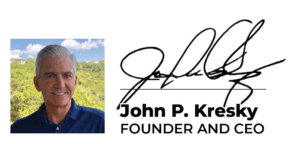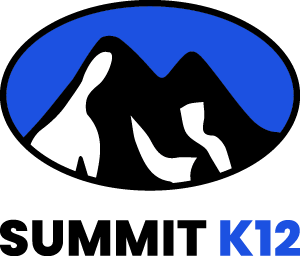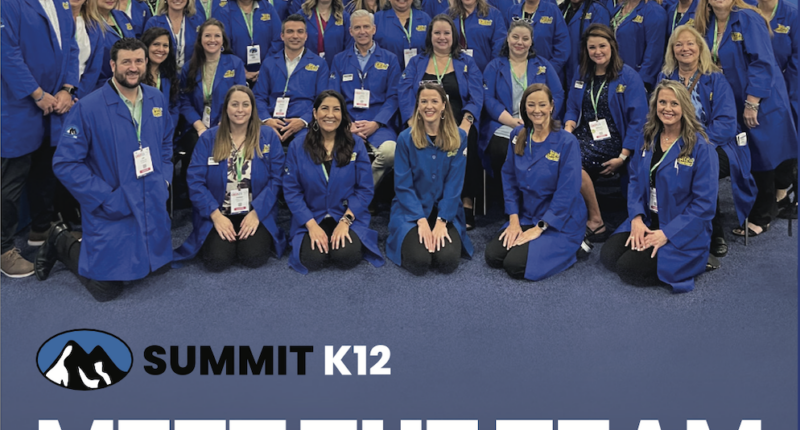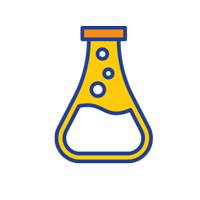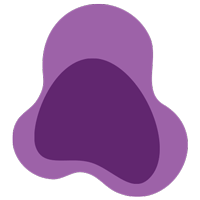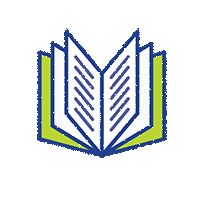Image by Summit K12©

Summit K12’s groundbreaking 2024 Adoption Science Curriculum is designed to revolutionize the way Science is taught in Texas. Our new Dynamic Science curriculum covers elementary, middle school, and high school Biology, Physics, and IPC. Our innovative, engaging, and hands-on Science curriculum is here to support educators and students with the most advanced Science resources available.
Today, we have the privilege of speaking with John Kresky, founder and CEO of Summit K12. In this interview, we talk about the new Science program, the content writers, our partnerships, and how we support Science and Multilingual Learners in Texas and throughout the country.
We’ll also learn more about the Dynamic Science Authors team – highlighting the new Dynamic Science program the Texas Education Agency recently adopted.
Robyn Shulman: Mr. Kresky, can you provide a high-level description of Summit K12? What is the mission?
John Kresky: At Summit K12, we believe every student can succeed in school if we tailor instruction to their unique learning needs and encourage them to strive and achieve. Our learning programs allow teachers to differentiate instruction, monitor progress, and support every learner’s journey toward success. Ultimately, our mission is to provide differentiation, personalized learning, accelerated learning, and provide accommodations to help all Science and English Language Learning students in Texas and across the nation.
Shulman: Can you tell us about the vision behind Summit K12 and its founding in 2015?
Kresky: In 2015, I started Summit K12 with the vision of creating an Education Publishing Company organically built for Texas to empower teachers to differentiate teaching and learning for all students.
Created by Texas Educators for Texas Teachers
Shulman: How is Summit K12 unique in its approach to science education, especially in Texas?
Kresky: Summit K12 is unique because Texas educators created our programs specifically for Texas teachers. However, our Science curriculum and all of our English programs can address the needs of any school district across the nation.
Personalized Learning at Summit K12
Personalized learning is an educational strategy that tailors instruction, content, and pace to each student’s needs and preferences as part of personalized learning. Teachers must have strong background knowledge of their students to connect the real world to their lives inside and outside the classroom.
Shulman: How do you address personalized learning in the Dynamic Science program?
Kresky: Teachers can use Summit K12’s online programs for whole-class and small-group instruction to provide targeted, individualized review and practice. Whether students are struggling to master concepts or are accelerated learners, Summit K12 allows teachers to differentiate instruction easily, enabling all learners to work at their own pace and meet learning standards, regardless of their skill level or learning style.
Shulman: Can you share an example of how Summit K12 addresses personalized learning for the Dynamic Science Program?
Kresky: Outside of creating a program that scales to all students, we also brought the world of Texas and Science Phenomena into the classroom. Through our different learning modalities – such as ‘Kate the Chemist’ videos and Texas State Park simulations – students can relate to what they see inside of each classroom session and outside in their lives, too. The connection between home and real-life learning is essential.
Shulman: Who makes up the Dynamic Science content team at Summit K12?
Kresky: Our team includes a world-class Science Editorial and PD Leadership team. This group comprises of past TSELA Presidents, board members, a former STAT President, a former NSELA President, and numerous Texas District Science Directors and Coordinators.
Shulman: How many Texas K-12 Science authors and editors were involved in the curriculum, and how many employees do you have at Summit K12?
Kresky: We have over 80 Texas K-12 Science authors and editors. We have 150 Texas-based employees.
Professional Development for all Stakeholders
Shulman: Can you tell me how you address professional development at Summit K12?
Kresky: Veteran Science Texas Educator Dr. Linda Cook leads our professional development team. We support all stakeholders – including science teachers, district coordinators, instructional coaches, principals, superintendents, and parents. We aim to lead teachers and administrators into 3D teaching and learning.
Shulman: Can you provide a high-level overview of what this looks like in a school district in Texas?
Kresky: We offer professional development implementation webinars for teachers to get them started with the course overview. We are there every step of the way. We offer training through Zoom, asynchronous, and on-site.
Shulman: Where can we view your professional development schedule?
Kresky: You can find our professional development schedule here. It will be on our website soon too.
Support for All Texas Learners

Image by Summit K12©
Kresky: Our courses were organically built from the ground up for the Texas Science Proclamation 2024. We incorporated all of the new Science TEKS, ELPS, RTCs, and SEPs to meet the needs of all Texas students. Through the Dynamic Science program, we make teaching Science and literacy fun and engaging for students and teachers alike.
Shulman: How does Summit K12 support all Texas Science learners?
Kresky: We support all Texas learners through vertically aligned scaffolds and personalized learning plans. Our program empowers teachers to differentiate and accelerate instruction for all students.
Robyn: How do you support students with special needs?
Kresky: We support students with special needs by embedding the TEA’s Accessibility Accommodations and Designated Supports. We also offer K-8 Spanish Science Courses to support multilingual, bilingual, dual language, and ESL classrooms.
Shulman: From a curriculum perspective, what makes Summit K12’s Dynamic Science program different from other publishers – specifically in Texas?
Kresky: Here are a few ways our Dynamic Science program stands out in Texas:
- Meets content TEKS, SEPs, and RTCs
- Brings Science and Literacy together
- Courses offered in Spanish
- Our partnership with PhET Interactive Simulations – Including Summit K12 Lab Guides built to the 2024 Science TEKS.
- Our collaboration with Dr. Okhee Lee
- Our personalized learning program was built specific for Texas students. We also bring in real-world themes such as state park videos for virtual field investigations and we offer an engaging ‘Kate the Chemist’ video series.
- Partner with the Texas Science Community and Thought Leaders
Working with Media and Thought Leaders in Science
Shulman: Can you elaborate on Summit K12’s partnerships with the Texas Science Community and Thought Leaders?
Kresky: Summit K12 has media partnerships with TSELA, STAT, TABE, The Texas School Alliance, Kate the Chemist, and Dr. Okhee Lee.
Shulman: Can you tell me about your collaboration with Dr. Lee?
Kresky: Dr. Lee is a professor at the Steinhardt School of Culture, Education, and Human Development at New York University. She is widely known for advancing research, policy, and practice that simultaneously promote Science and language learning for all students, particularly multilingual learners. We’ve been fortunate and honored to collaborate with Dr. Okhee Lee in our Dynamic Science program.
She’s been part of helping to educate and inform our students about the relationship between Science and language.
Shulman: Can you tell me about your recent interview series with Dr. Lee?
Kresky: We did a 4-part series of interviews with Dr. Lee. The first one (below), is entitled “Contemporary Approaches to Science Education.”
You can watch our first interview with Dr. Lee below.
Engaging and Motivating All Students to Do Science with ‘Kate the Chemist’
Shulman: Can you tell us about the partnership between Summit K12 and ‘Kate the Chemist’ and your collaboration goals?
Kresky: Summit K12 formed a collaboration with Kate the Chemist last year. Dr. Kate Bieberdorf is a UT Professor and National Science media personality. We worked together to engage all students and ignite their passion for Science.
Shulman: Can you share more information about your partnership?
Kresky: Sure. In 2023, Dr. Bieberdorf spent several days working with school districts such as Allen ISD, Austin ISD, Katy ISD, and Leander ISD. Dr. Bieberdorf co-created a diverse collection of TEKS-based pre-lab, full-lab, and Scientific Phenomenon videos for our students. You can see one of our videos below.
Shulman: Please tell me more about the resources you created together and how they meet teachers’ needs in Texas.
Kresky: The content produced through this collaboration includes a rich variety of TEKS-based pre-lab, full-lab, and Scientific Phenomena videos. We support the educational needs of K-8 and High School students, providing valuable Science resources for teachers and students as they delve into anchoring and investigative phenomena.
Curriculum Differentiation in Science
Shulman: Let’s talk about differentiation regarding teaching Science. Why is it so crucial?
Kresky: Differentiation is a crucial aspect of effective teaching in all content areas. It refers to tailoring instruction to meet the diverse needs of students.
Shulman: What are TEKS? How does incorporating the TEKS Vertically Aligned Scaffolds contribute to differentiation in science education?
Kresky: TEKS stands for Texas Essential Knowledge and Skills. Our Vertically Aligned Scaffolds are instructional supports designed to help students understand and master the content outlined in the state standards.
Shulman: How does differentiation help teachers identify learning gaps?
Kresky: Differentiation helps teachers to identify learning gaps so they can identify and address lacking areas in comprehension and understanding – while offering additional support where needed.
Honoring the Texas State Parks during its 100th Anniversary
Summit K12 had the privilege of partnering with dozens of Texas State Parks to shoot TEKS-based virtual field investigation videos and learn from park interpreters about “Local TX Phenomena.” Through this program, ALL students will investigate local phenomena throughout dozens of the most popular state parks and engineering marvels in Texas.
The Summit K12 TEKS-based Virtual Field Investigations video series has been created specifically for the 2024 Texas Science Adoption.
Shulman: What is the purpose of the Texas State Parks series?
Kresky: The series aims to honor Texas State Parks and allow all Texas students to virtually visit the state parks and other modern marvels of Texas through field investigations.
Shulman: How many seasons are planned for the virtual field investigation video series?
Kresky: Summit K12 planned 8 seasons for the virtual field investigation video series, with the 2024-25 season being the first.
Shulman: Can you share an example video?
Kresky: Here’s our promo video for the state parks.
Science Guarantee
Shulman: In which grades and subject areas does the team include a patented STAAR Readiness Solution, and what does it guarantee for students?
Kresky: We include The patented STAAR Readiness Solution for grades 5, 8, and Biology.
Shulman: What does the guarantee cover?
Kresky: It guarantees all students a 100% passing rate and a campus Domain 1 Science component score of > 60 (A”). In addition, all of the new HB3906 items are included in the Dynamic Science Assessments.
Relationship Managers you Can Trust Because they Reflect your Values
Kresky: Summit K12’s team of District Relationship Managers are trustworthy professionals who have served in Texas classrooms and district leadership roles.
Shulman: How do your Relationship Managers assist teachers with 3D teaching and learning?
Kresky: Our Relationship Managers are well-positioned to guide educators through the materials selection process and support the transition to 3D teaching and learning – reflecting the values of our partners.
Meet the Support Team at Summit K12
Shulman: What is the role of the Summit K12 customer support team?
Kresky: The Summit K12 customer support team is crucial in providing on-boarding and ongoing support to teachers and administrators throughout the school year. Our team is dedicated to assisting users in implementing software solutions effectively in the classroom.
Shulman: How does the Summit K12 team support teachers and administrators?
Kresky: We offer support through various channels, including phone and email. Our experienced team is well-equipped to guide teachers and administrators, addressing their queries and concerns to ensure seamless integration of software solutions in the educational environment.
Shulman: What sets the Summit K12 customer support team apart from others?
Kresky: We proudly hire former K-12 classroom teachers. With over 40 collective years of classroom experience, our team understands firsthand the challenges and dynamics of implementing software solutions in an educational setting. This unique perspective enables us to provide targeted support.
Shulman: What is the significance of hiring former K-12 classroom teachers for your support team?
Kresky: Hiring former educators is significant because it brings a deep understanding of educators’ challenges in implementing software solutions. This firsthand experience allows us to tailor our support to the specific needs of teachers and administrators, making the assistance more effective and relatable.
Students
Shulman: How many students does Summit K12 serve?
Kresky: We currently serve 769 Texas school districts, 7,533 schools, 75,088 Texas teachers and 1,368,112 students.
The Dynamic Science Package
Shulman: Can you tell me more about the Dynamic Science Package?
Kresky: We created a program that highlights and covers the most essential aspects of a top-notch Science program for Texas. Some of these important offerings include:
• Student and Teacher Online Access
• 3D Lesson Guides TEKS/SEPs/RTCs
• Teacher Training
• Phenomena Master Library
• Instructional TEKS Video Lessons
• TX Virtual Field Investigation Videos
• Kate the Chemist Lab Videos
• PHET Simulations and Virtual Labs
• Science-Literacy eBooks including RLA TEKS
• TEKS Vocabulary Mastery/Image Bank
• Newcomer Science Lessons and Vocabulary
• STAAR® Readiness Module (5th, 8th, and Biology)
• TEKS Assessment Bank with STAAR® 2.0 items
• Personalized Learning Plans for STAAR® Review
• Optional Printed Teacher Edition
• Optional Printed 3D Student Activity Workbooks
• Optional Lab Materials Kits from Wards Science
English Language Learning
Shulman: Does your English Language Learning program apply to all states in the US?
Kresky: We tailor our English Learning Language Program offerings for all states. For Texas, we work with schools to support TELPAS. In California, we support educators for the ELPAC, provide programs for LAS Links, and support all WIDA consortium states.
Shulman: Anything else you’d like to share?
Kresky: “Our mission is to empower Texas to become the #1 state in the US for Teaching and Learning Science. I invite you to get to know our team and look closely at our Dynamic Science materials as you explore a potential partnership for the next eight years.”
Shulman: Where can we learn more about the Dynamic Science Curriculum?
Kresky: You can learn more about our science curriculum by visiting our Dynamic Science page. You can also request a free digital trial. Please download our brochure below to learn more about our program and meet the talented people who contribute to Summit K12.
